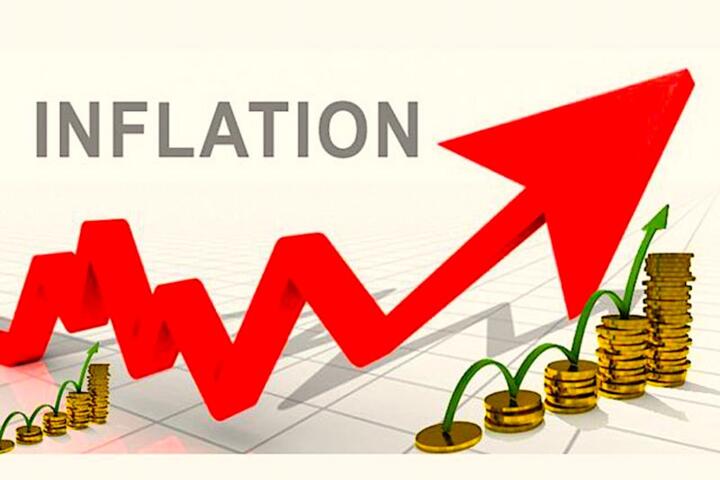Nigeria’s inflation rate has recorded its fifth consecutive monthly decline, according to the latest data released by the National Bureau of Statistics (NBS). This development has been welcomed as a positive sign for Africa’s largest economy, which has been battling persistent price pressures over the past three years. The moderation in inflation is being seen as a reflection of ongoing fiscal and monetary measures targeted at stabilising the economy, enhancing food supply, and improving exchange rate liquidity.
The NBS report indicated that headline inflation, which has been a major concern for households, businesses, and policymakers, eased once again in August 2025, marking the fifth month in a row that consumer prices have decelerated. Analysts attribute this sustained decline to tighter monetary policy implemented by the Central Bank of Nigeria (CBN), improved food distribution following government interventions, and a relative strengthening of the naira in the foreign exchange market.

For months, inflationary pressures had eroded household incomes and heightened the cost of living crisis, with food inflation in particular placing immense strain on ordinary Nigerians. But the latest trend suggests that recent government policies are beginning to yield results. The CBN’s decision to maintain a high Monetary Policy Rate (MPR), while simultaneously enhancing liquidity in the official forex window, has curbed speculative attacks on the naira and helped moderate imported inflation.
Food inflation, which accounts for the bulk of Nigeria’s inflation basket, also showed signs of easing, supported by increased harvests and reduced transportation bottlenecks. Government interventions such as the release of grains from strategic reserves, subsidised distribution to vulnerable households, and improved access to farming inputs contributed to this outcome. In addition, recent reports of enhanced security in key food-producing regions have allowed farmers greater access to their fields, further stabilising supply.
Core inflation, which excludes volatile items like food and energy, also trended downward. This indicates that the inflation moderation is not solely dependent on agricultural supply but is also supported by structural reforms and stronger macroeconomic management. According to analysts, the implementation of fiscal discipline by the federal government, coupled with reduced dependence on deficit financing, has played a critical role in creating a more stable pricing environment.
Despite the positive development, the NBS noted that inflation remains at double-digit levels, significantly higher than the CBN’s long-term target of 6–9 percent. While the trend is encouraging, experts caution that it will take sustained effort to bring inflation down to single digits. Nigeria continues to grapple with structural challenges such as inadequate infrastructure, high energy costs, and insecurity in farming communities. These factors, if not addressed comprehensively, could reverse the recent gains.
Market reactions to the report have been cautiously optimistic. The Nigerian Exchange (NGX) recorded slight gains following the release of the inflation figures, as investors interpreted the data as a sign of growing macroeconomic stability. Businesses, particularly in the manufacturing and retail sectors, have also expressed cautious optimism, as slower inflation could help reduce costs and stimulate consumer demand.
On the government side, policymakers have welcomed the news as evidence that their interventions are working. The Ministry of Finance reiterated its commitment to sustaining fiscal consolidation while supporting measures that improve productivity and attract investment. Officials also emphasised that inflation moderation provides more room for sustainable economic growth and increases investor confidence in Nigeria’s reform agenda.
International observers, including multilateral organisations, have taken note of Nigeria’s progress. The International Monetary Fund (IMF) and World Bank have previously stressed that tackling inflation is key to achieving long-term economic stability. The latest figures are likely to boost Nigeria’s standing in international markets and encourage capital inflows, particularly into sectors like agriculture, energy, and infrastructure.
However, consumer groups remain cautious, pointing out that while inflation is slowing, prices are still high relative to income levels. Many Nigerians continue to struggle with elevated food, housing, and transportation costs. They argue that inflation relief must translate into actual affordability if it is to have a meaningful impact on everyday life.
Economists suggest that the federal government should consolidate these gains by prioritising investment in infrastructure, particularly in transport and energy, to reduce production and distribution costs. They also recommend targeted social programmes to cushion vulnerable groups while reforms aimed at diversifying the economy continue.
Looking ahead, most analysts predict that if current policies are sustained and no major external shocks occur, inflation could continue on its downward trajectory for the rest of 2025. Key risks, however, include volatility in global oil prices, climate-related disruptions to food production, and potential currency pressures if foreign exchange inflows slow down.
In summary, the NBS report marks a significant milestone for Nigeria, as the economy records its fifth straight month of easing inflation. While challenges remain, the trend suggests that policy measures are gradually restoring macroeconomic balance. For Nigerians, the hope is that this progress will soon translate into lower living costs, improved purchasing power, and a more stable economic environment.
Support InfoStride News' Credible Journalism: Only credible journalism can guarantee a fair, accountable and transparent society, including democracy and government. It involves a lot of efforts and money. We need your support. Click here to Donate
